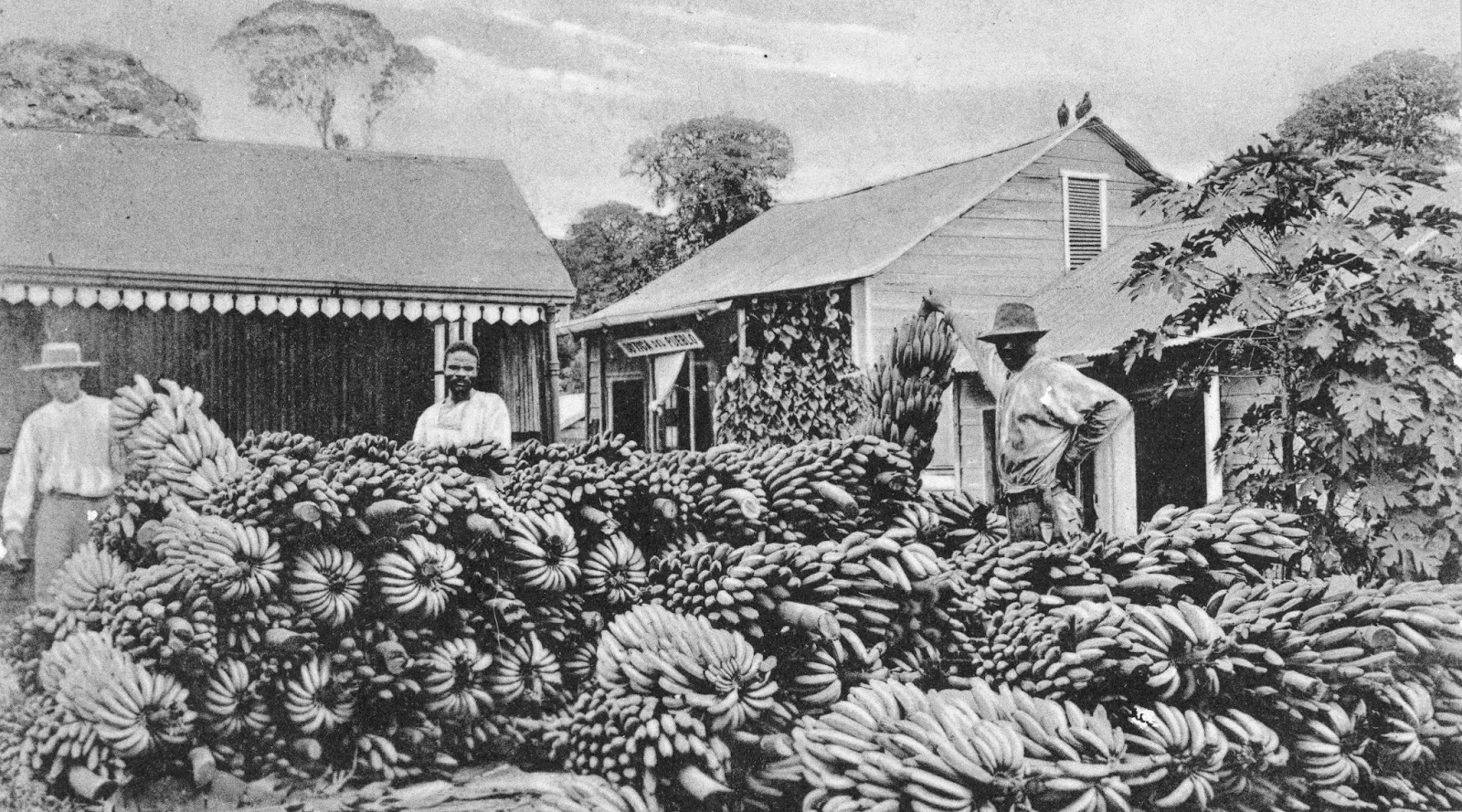 |
| United Fruit Company |
United Fruit was one of the largest multinational companies in the early 20th century. In 1954 it lobbied the U.S. government to overthrow the elected government of Guatemala. Formed in 1898 by the merger of Boston Fruit Company and Tropical Trading and Transport Company, United Fruit dominated all aspects of the banana trade from Latin America to the United States.
Because of this control the company was able to dictate terms and conditions regarding taxes and land purchases to the governments of Latin America. This began coming to an end after World War II.
With the end of the war, workers unionized, and countries wanted more control of their resources. The harshest response to this trend was the coup that unseated the democratically elected government of Guatemala. United Fruit's share of the banana market slid from 80 percent in 1950 to 34 percent in 1973.
  |
When United Fruit was founded in 1898, the two companies that merged brought mutually beneficial resources to the merger. The Boston Fruit Company controlled banana sales along the northeast coast of the United States, had a fleet of steamships, and owned land in the Caribbean. Tropical Trading and Transport Company owned land in South and Central America, had a railroad there, and controlled much of the sales of bananas along the southeast coast of the United States.
The newly created company had control of the banana from growth to sale. The company used bribes and threats of U.S. government intervention in Latin American countries. The company also bought rival businesses to increase its control of the industry, and by the early 1900s, United Fruit controlled at least 8 percent of all banana imports in the United States.
With the end of World War II, United Fruit began to have problems. One of these was Guatemala. The first leftist government was elected by the people in 1951. The government, led by Jacobo Arbenz Guzmán, wanted to develop a broader base for the economy, which included land reform.
United Fruit and the U.S. government claimed that Arbenz was a communist. In 1953 the company supported a coup by a small part of the Guatemalan army, which the government was able to put down. Then, in 1954 the Central Intelligence Agency (CIA) got involved.
 |
| Bananas production |
Fearing the spread of communism, a fear shared by United Fruit, the CIA supported a coup against the government, which succeeded. Arbenz resigned his position, and Guatemala returned to rule by a right-wing dictator.
The coup did not have the effect United Fruit had hoped for. President Dwight Eisenhower faced criticism from other nations over the CIA's involvement in the coup. Then the U.S. Justice Department took United Fruit to court under the Sherman Anti-Trust and Wilson Acts because of its monopoly on the banana market. Ultimately, the company was forced to divest itself of part of its banana business and was prohibited from buying any other banana production companies.
After the coup, United Fruit found that it was viewed with hostility by other Latin American countries. Workers' rights were now being supported by local governments, which increased the costs United Fruit incurred to grow and harvest the bananas.
In an attempt to improve its position, United Fruit began selling off land and buying more bananas from local producers. The company continued to move away from controlling the entire process of bringing the bananas to market and moved to diversify its business.